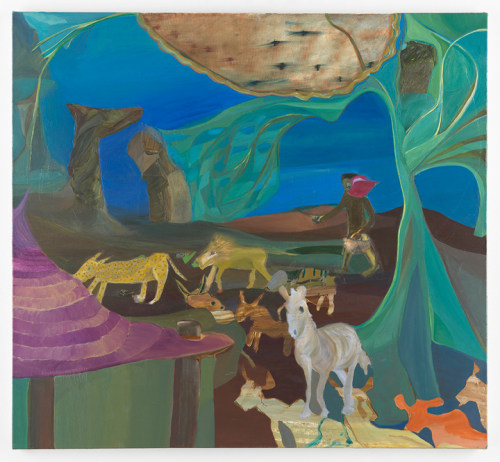

"When CFAM reopens next week, you will see this painting by Ficre Ghebreyesus (1962-2012) in the collection gallery. Titled Shepherd, it is not a very large painting – and yet it draws you in with unusual force. First you notice the materiality of the paint – earthy, substantial yet light – and then an almost circular motion draws you towards the center, the composition revealing itself one layer at a time. The abstracted animals in the foreground lead to the more defined white horse behind them; from there, the mauve-roofed house to the left and the outsized plant stem to the right contour and contain the rest of the composition, where the protagonist, a shepherd the color of dark earth, leads other, less expected, animals. The world depicted is inviting, full of wonder and questions. Does a shepherd tend to lions and panthers? Does a flower the color of light earth become a tree? Do rocks resemble animals and vice-versa? The answer is always yes, in Ghebreyesus’s beautifully imagined world.
I started to understand that private world when I read Elizabeth Alexander’s memoir The Light of the World, written just after she lost Ghebreyesus, her husband of 15 years, to cardiac arrest. It is probably the most beautiful book dedicated to love and loss, grieving and resilience that I have ever read. Alexander captures – with the poetry that’s uniquely hers – the delicate, colorful balance between real and imaginary, between the world of the painter’s childhood and his dream of Africa, and of a better world: “Ficre did not paint what he saw. He saw in his mind, and then he painted, and then he found the flowers that were what he painted. He painted what he wanted to continue to see. He painted how he wanted the world to look. He painted to fix something in place.” I invite you to come see Shepherd at the museum sometime soon and let yourself drawn into the hopeful, joyous world of Ficre Ghebreyesus. It is a salve for the soul."
Ena Heller, Ph.D.
Bruce A. Beal Director